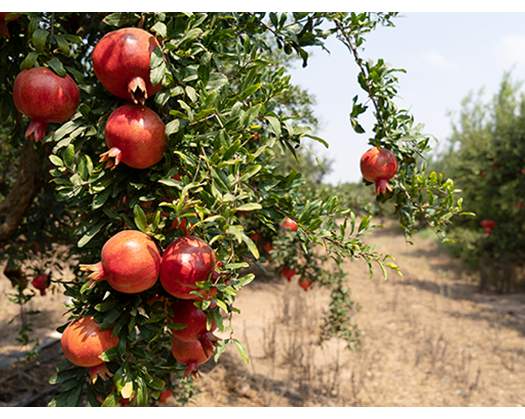Muscat: The Ministry of Agriculture, Fisheries, and Water Resources (MAFWR) in Oman is committed to promoting sustainable growth in agriculture, focusing on improving food security, increasing crop yields, and managing threats from pests. As part of its strategy, the Ministry is encouraging various projects to boost private sector participation in agricultural growth and secure the long-term viability of Oman's farming resources.
To enhance local crop production, the Ministry has distributed a significant number of commercial fruit saplings to farmers, including 41,000 lemon saplings, 25,000 mango saplings, and numerous saplings of guava, fig, papaya, coconut, sidr, and pomegranate. Additionally, more than 27,000 tissue-cultured and traditional date palm cuttings are planned to be distributed in 2024 across Oman, supporting the growth of date palm orchards over 270 acres.
Nakheel Oman Development Company has played a crucial role, managing 11 farms across six governorates, totaling 500,000 date palm trees. The company promotes its date-based products under the brands “Tamrah,” “Nizwa,” and “Zad” for both local and international markets, and employs a state-of-the-art tissue culture lab to produce date palm cuttings and other seedlings, ensuring the quality and sustainability of date production in Oman.
In the quest for self-reliance, the Ministry has expanded the cultivation of wheat to over 8,940 acres, resulting in more than 11,600 tonnes of wheat production. This expansion included the introduction of 17 different wheat varieties to diversify production and enhance resistance to agricultural challenges. The Ministry has also made strides in grape cultivation, with the establishment of 25 commercial grape fields, and has invested in olive tree projects, especially in Jebel Akhdar and other hilly areas. This olive tree project includes the distribution of 10,000 olive cuttings to farmers and the creation of a local olive oil production facility.
To protect agricultural assets from pests, the Ministry has launched extensive pest control initiatives, including broad-scale aerial spraying to fight against date palm moths, red palm weevils, and other pests affecting agriculture. The use of advanced pest control methods, such as drones and helicopters, has been employed to cover large areas, aiming to protect crops and increase yields.
The Ministry's regulatory actions have strengthened the markets for pesticides and fertilizers by issuing new licenses and overseeing the import and export of these products. Last year, the Ministry granted 96 pesticide registration certificates and 225 retail licenses for the sale of fertilizers, among other permits. These measures, in combination with inspection activities, ensure the quality and compliance with environmental and health standards, protecting the health of plants and the safety of consumers.
More efforts are underway to check local farms and large-scale farming operations to keep up with regulations. Over 10,000 checks were made, leading to the discovery of many infractions, including the use of land without permission and the sale of crops without proper licenses. To improve the health of plants, the Ministry has helped with getting import approvals for different types of plants and plant-based goods, and has reviewed farm deliveries to make sure they are safe and of good quality.
By doing this, the Ministry is playing a key role in supporting Oman's food security, boosting the resilience of the agricultural sector, and encouraging eco-friendly methods that are in line with Oman Vision 2040. This is all aimed at ensuring a steady and successful future for the farming industry.












